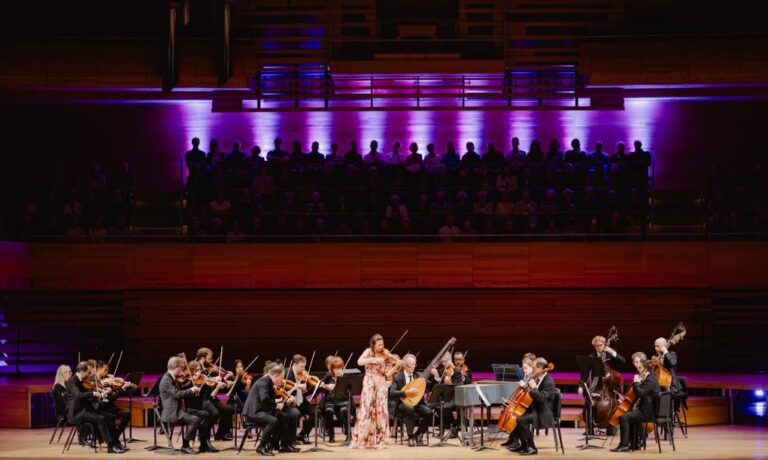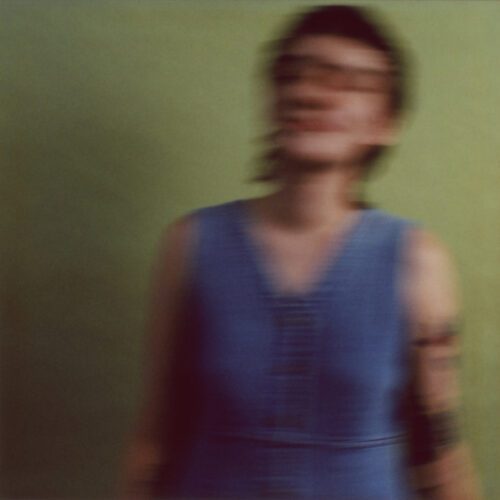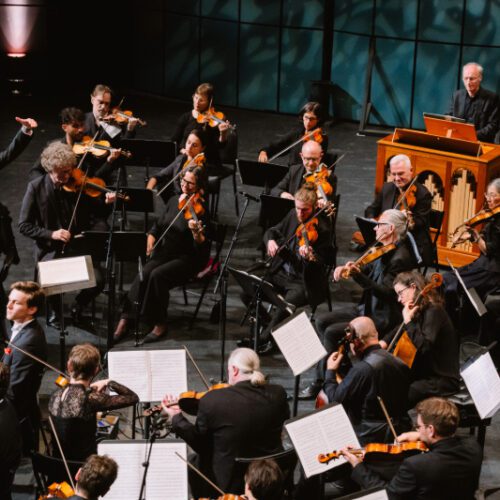On a sunny afternoon, nearly two thousand people packed into the Maison Symphonique on Sunday to hear the Orchestre symphonique de Montréal (OSM) in its reduced format, led by conductor and soloist Rosanne Philippens, perform Antonio Vivaldi’s Four Seasons and Astor Piazzolla’s Buenos Aires.
It’s interesting, and common, to present the two bodies of work in the same program, especially as they are separated by some 230 years and 11,000 kilometers. What is surprising, however, is to alternate Vivaldi’s Seasons with those of Piazzolla. As a listener, it’s easy to switch from baroque to tango, but the reverse is less fluid. Nowhere in the program is there any mention of the reasons for this decision. Our hypothesis is that, as one of the two works is twice the length of the other, an order allows us to present two concert parts of equal length.
It’s worth recalling what the Seasons are all about. Vivaldi’s four concertos are accompanied by poems, probably written in the composer’s own hand. These essentially allude to activities (a festival, hunting), human or animal characters, the weather, or feelings and resentments (fear, cold). In this respect, it would have been preferable to oppose the two violin desks with a continuo in the middle, rather than opt for the traditional orchestral formation. As a result, the birds don’t all sing from the same side, and the wind swirls in all directions.
You didn’t have to be far-sighted to follow the music with the poems printed in the program, as there was so little light in the middle of the parterre. Le Printemps promised little of interest; the strings were heavy, and the lightness of birdsong was nowhere to be felt. The long notes did not lend themselves to the pastoral rhythm of the third movement, and the dancing spirit went unnoticed. At least, this articulation did justice to the barking dog represented by the viola in the second movement.
Fortunately, this was the only less successful moment of the concert. From the very first moment of the Été, you can feel the terror and the storm being unleashed in a lively tempo and marked articulation. Autumn also passes the test, despite the fact that the slow movement, Night, is played too fast for an Adagio Molto indication. The chord progressions in this movement are magnificent and deserve to be savored, leaving the harpsichordist free rein.
Winter is by far the most successful season, as there is much more freedom in sound effects and tempo, whereas the other three concertos were performed more traditionally. The violins are creaky, and we feel the cold penetrating us, the wind whirling and the “teeth chattering”, as written in the poem.
Piazzolla’s Cuatro Estaciones Porteñas (porteñas means the inhabitants of Buenos Aires) “musically describe the different periods in the lives of the inhabitants of the suburbs of Buenos Aires according to seasonal changes”. Sunday’s performance was at times melancholy, at others highly energetic and lively. As the tango rhythms were marked to perfection, it was amusing to see the theorbist tapping his foot as he waited to play again, tempting the audience to do the same. The slapping and glissando effects were surprisingly precise. Hats off to the OSM, led by the dynamic Olivier Thouin, for having succeeded in playing this work without a conductor leading with the baton.
Rosanne Phillipens is a fine violinist and a very good communicator. Despite a few inaccuracies, she moves seamlessly from one score to the next. Communication between her and the musicians is fluid, and the ball passes as if nothing had happened. Honorable mention also to the theorbo player, whose name appears nowhere, and to harpsichordist Luc Beauséjour, who brilliantly ornamented the Vivaldi pieces. Mr. Beauséjour had the honor of ending the concert on a humorous note; in Leonid Desyatnikov’s arrangement, Piazzolla’s Primavera Porteña ended with an echo of the beginning of Vivaldi’s Printemps on violin. Relayed to the harpsichord, it’s a funny allusion to a ringing cell phone, which fortunately didn’t ring on Sunday afternoon.
























